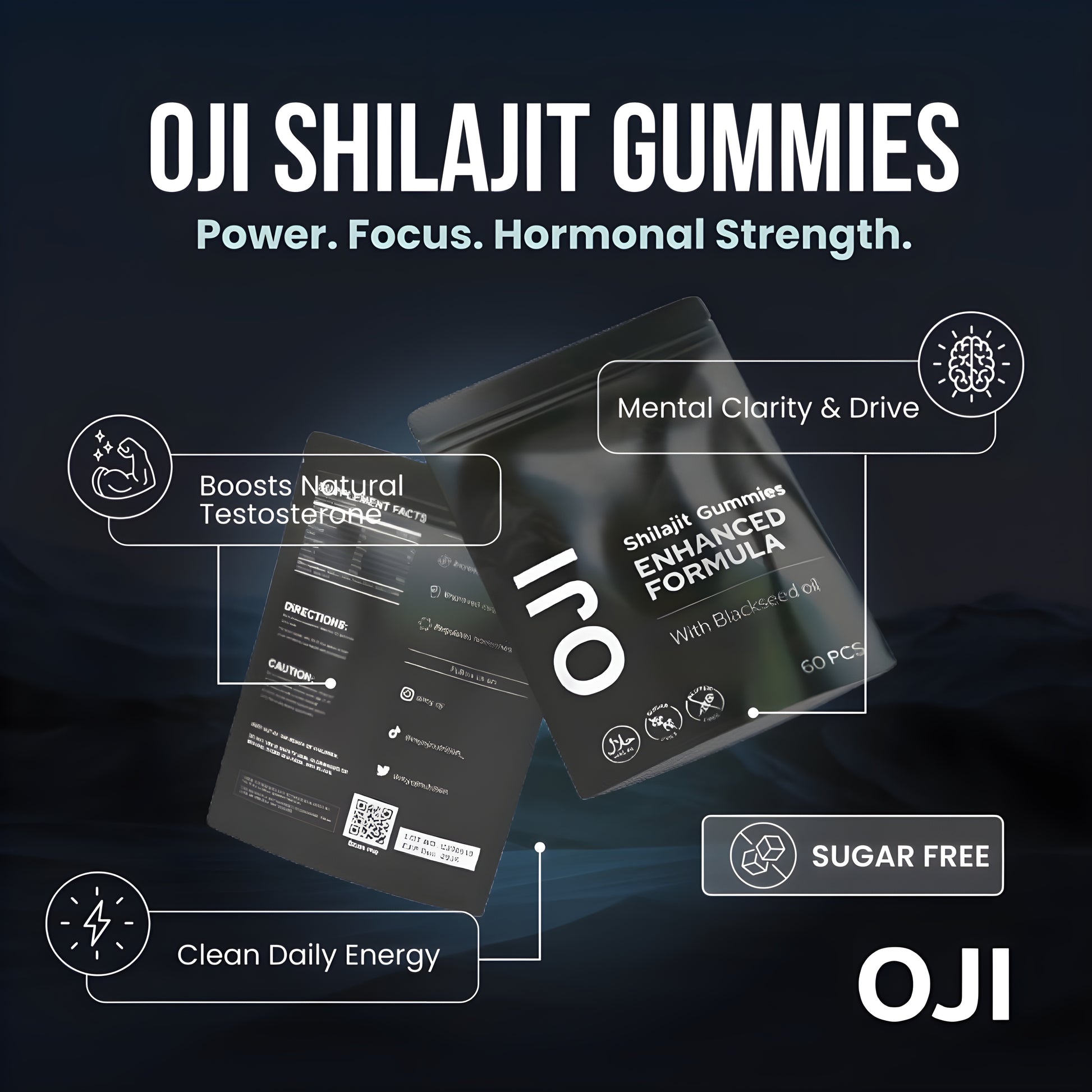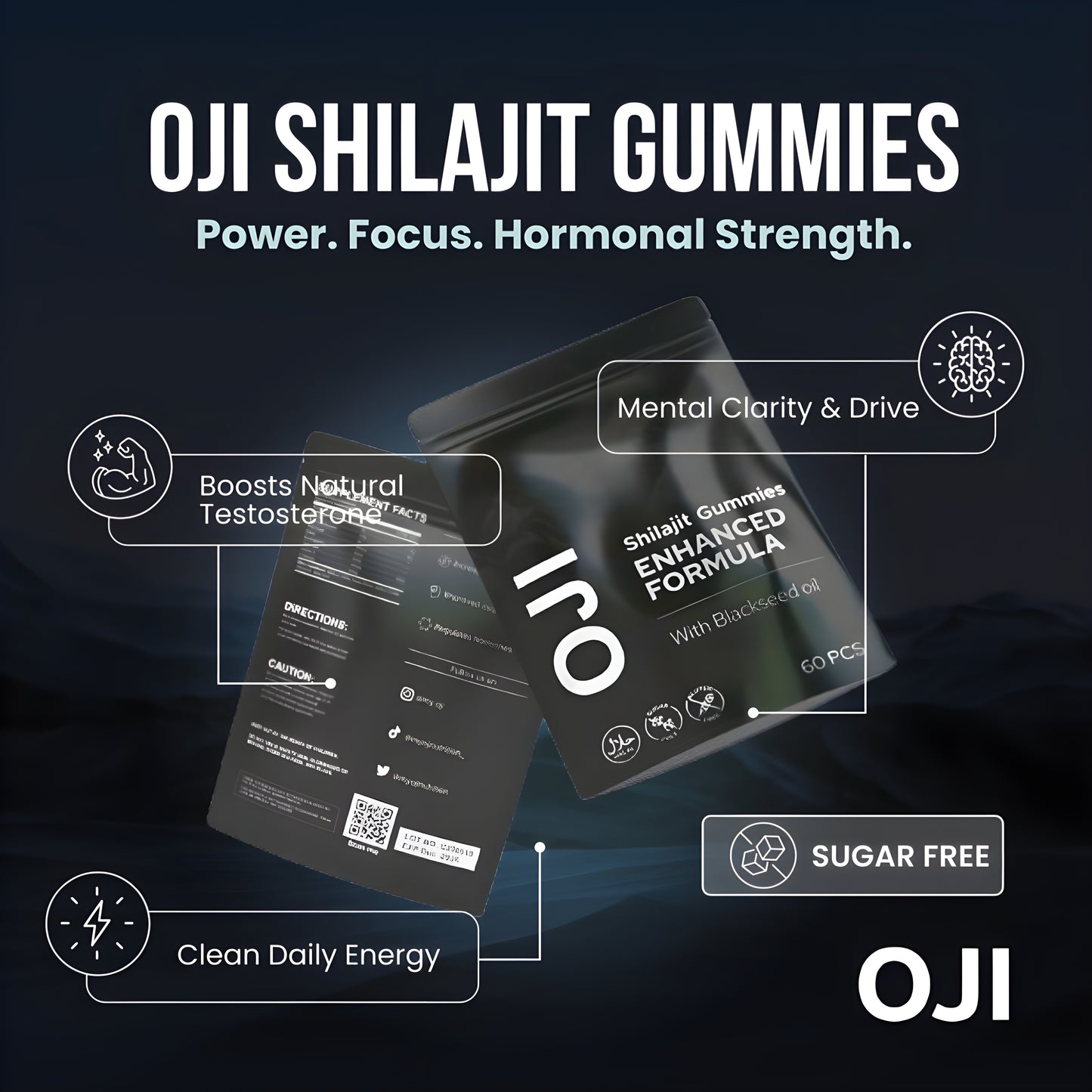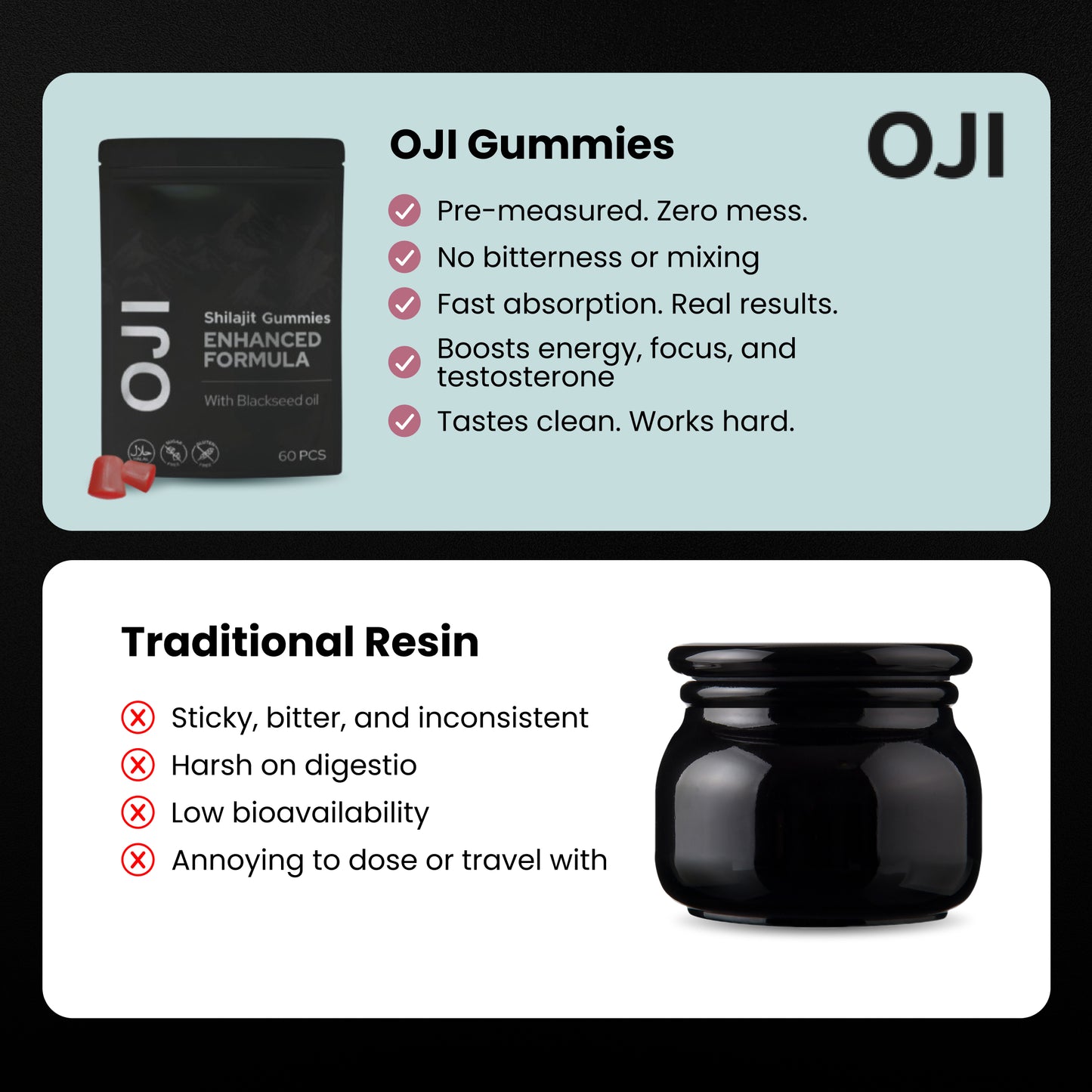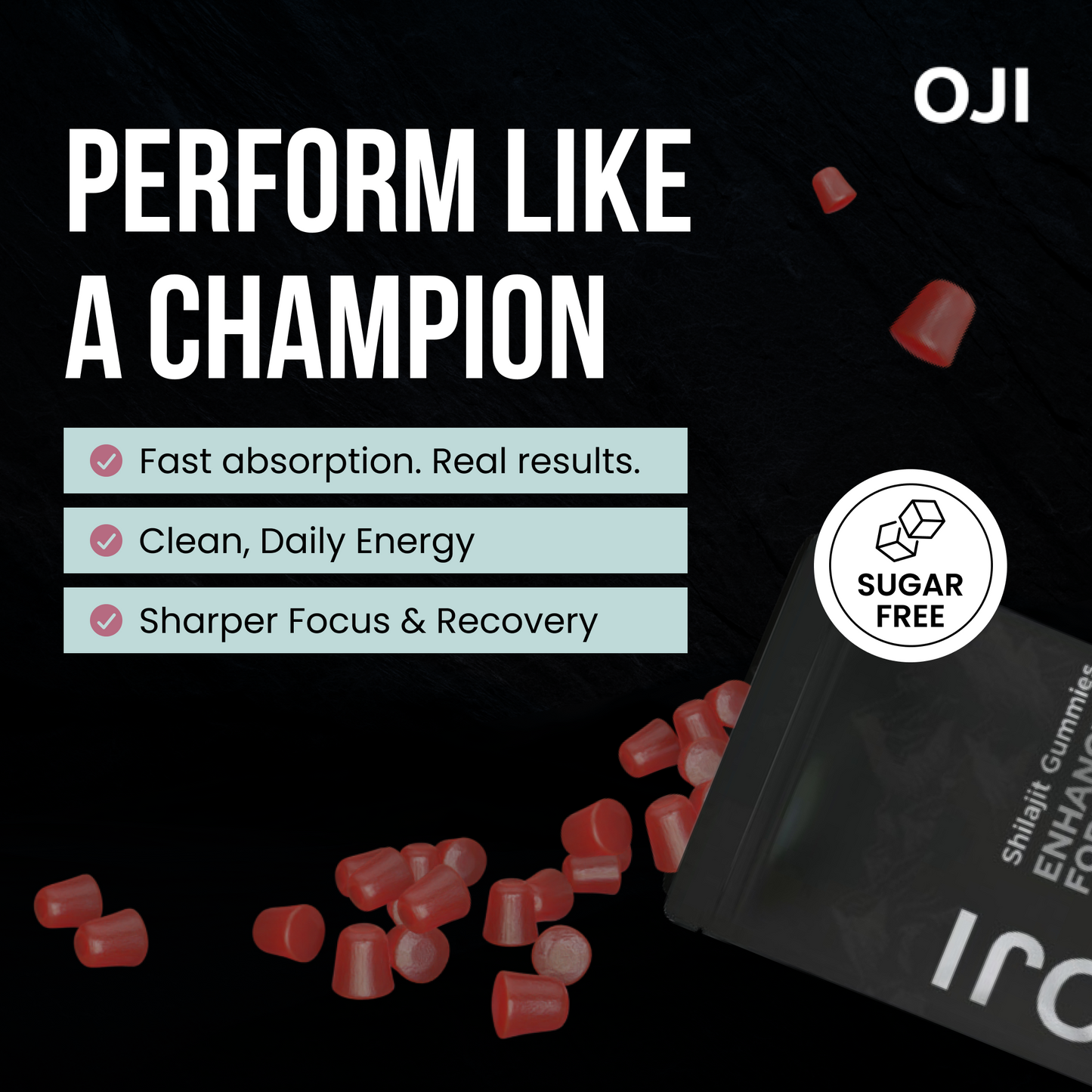Adrenal fatigue is a term that’s become a shorthand for burnout—that collection of symptoms like deep exhaustion and brain fog triggered by chronic stress. While not an official medical diagnosis, it describes a very real state where your body's stress-response system is depleted. The key isn't the label, but understanding that you can take practical steps to recover.
Understanding Adrenal Fatigue
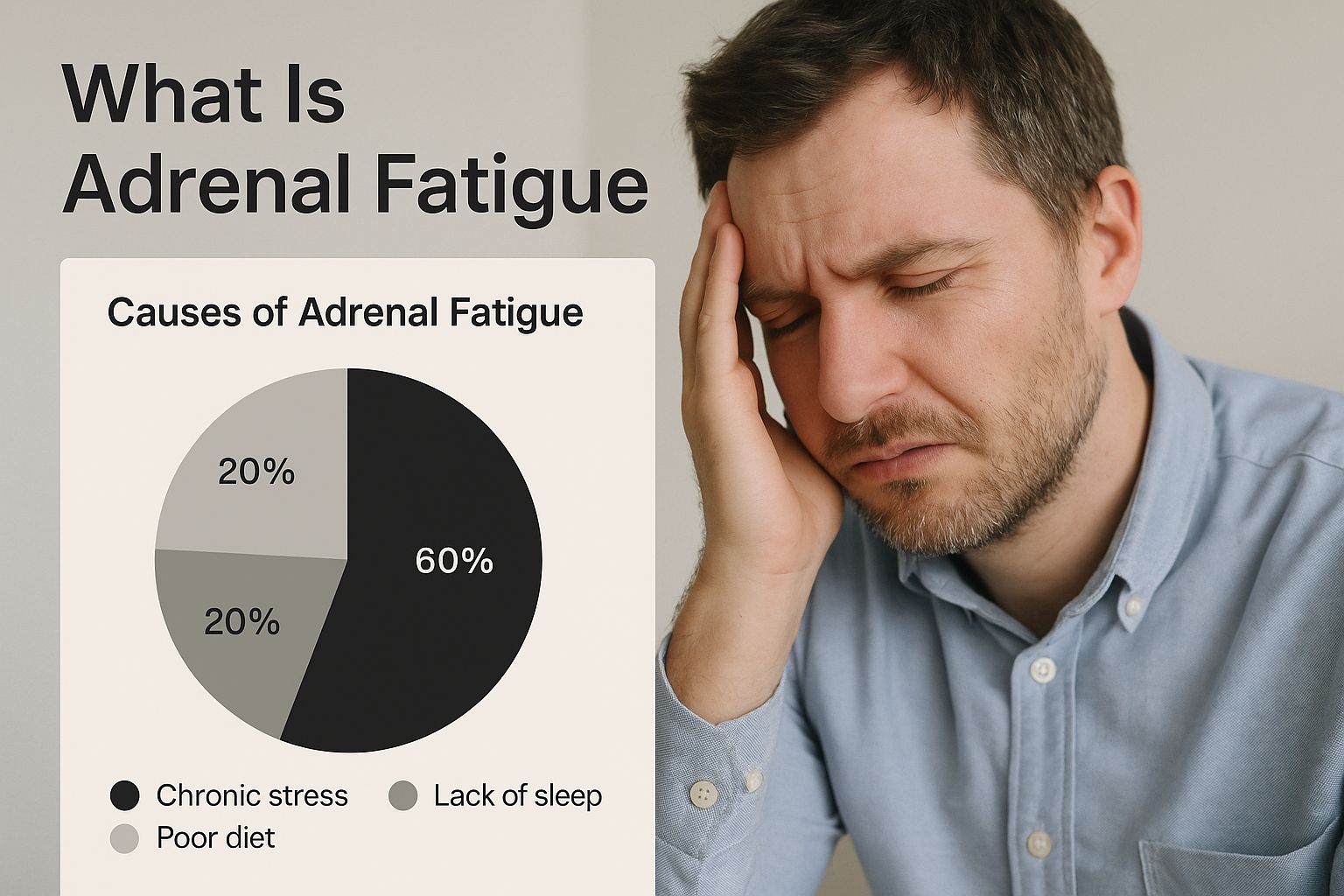
This image captures the feeling well. It’s an exhaustion that goes beyond being tired; it’s a state of burnout that impacts your daily life.
Think of your adrenal glands like a smartphone battery. With normal use and nightly charging, the battery works fine. But if you constantly run dozens of apps and never fully charge it, the battery drains fast and struggles to hold power.
This is what happens to your body under chronic stress. Constant emotional, physical, or environmental demands overwhelm your natural stress regulators. This throws your Hypothalamic-Pituitary-Adrenal (HPA) axis—your body's stress command centre—out of balance. The result is that collection of symptoms we call adrenal fatigue, and the first step to fixing it is recognising the problem.
What Does This Actually Feel Like?
This isn't just normal tiredness. It's a deep-seated exhaustion that a full night's sleep can't fix. You might feel "tired but wired" at night, find it nearly impossible to get out of bed, and feel overwhelmed by simple, everyday tasks.
This isn't "all in your head." These feelings are your body's signal that its system is overloaded and needs practical support. The most important action you can take is to listen to these signals and start making changes.
This experience is surprisingly common. In the UK, studies show around 24.2% of people report feeling general fatigue, which includes burnout from work. These numbers highlight a major public health issue where the symptoms of chronic fatigue and what people call adrenal fatigue often overlap. You can read more about the prevalence of fatigue in the UK population in recent studies.
Understanding what you’re feeling is the first step. Once you see how chronic stress is affecting you, you can take meaningful action to recover. Learn how to support adrenal glands through targeted lifestyle changes. The key is to address the root cause—the chronic stress itself—to rebuild your resilience and reclaim your energy.
Recognising the Signs of Adrenal Burnout

Spotting the signs of this deep-seated fatigue is your first practical step toward feeling like yourself again. When your body’s stress response has been working overtime, the symptoms rarely appear in isolation. Instead, they form a web affecting your energy, mood, and physical health.
Let's move past a simple checklist and into what these signs feel like day-to-day. By grouping them, you can connect what might seem like unrelated issues and get a clear picture of what your body is telling you it needs.
Energy and Sleep Patterns
A disrupted energy cycle is a major red flag. You might feel completely drained all day, propped up by caffeine, only for your mind to start racing the moment you try to sleep. That classic "tired but wired" feeling is a clear sign your stress hormones are imbalanced.
Take action by noting if you experience:
- Morning Exhaustion: Difficulty getting out of bed, even after a full night’s sleep.
- The Afternoon Slump: A significant energy crash between 2-4 PM, often accompanied by intense cravings.
- Trouble Staying Asleep: Waking up in the middle of the night, especially between 1-3 AM, and struggling to get back to sleep.
Mood and Mental Clarity
Constant stress doesn't just exhaust your body; it impacts your mind. You may notice a persistent brain fog that makes it hard to focus or remember things. Everyday tasks that you once handled easily now feel overwhelming.
This isn't a personal failure; it's a physiological response. When your system is overloaded, your ability to cope with stress decreases. An actionable first step is to acknowledge this and give yourself grace instead of pushing harder.
Physical Well-being
Your body sends clear physical signals when it’s under pressure. Intense cravings for salty or sugary foods are common; this is your body's attempt to regulate blood pressure and energy levels that have become unstable from stress.
You might also notice a weakened immune system. Are you catching every cold or finding that illnesses linger? Recognising these physical signs is a crucial step towards taking action and giving your body the support it needs.
How to Discuss Your Symptoms with a Doctor

Walking into a doctor's appointment feeling drained is challenging, especially when explaining symptoms of "adrenal fatigue"—a term not medically recognised by the NHS.
To get the help you need, you must be strategic. Instead of using a term your GP might dismiss, focus on describing your specific symptoms clearly.
Your action plan for the appointment is simple: prepare. Before you go, create a detailed log of what you're experiencing. Track your energy levels throughout the day, note your sleep quality, mood swings, and physical symptoms like salt cravings or dizziness. The more specific your data, the clearer the picture you provide for your doctor.
What Your Doctor Will Likely Investigate
When presented with symptoms like chronic exhaustion and brain fog, your GP's first action is to rule out other recognised medical conditions. This is a critical step.
Common conditions they will likely test for include:
- Thyroid Disorders: An underactive thyroid (hypothyroidism) is a major cause of fatigue and low mood.
- Anaemia: Low iron or certain vitamins can cause profound exhaustion.
- Vitamin Deficiencies: Low levels of Vitamin D or B12 are often behind persistent fatigue.
- ME/CFS: Myalgic Encephalomyelitis/Chronic Fatigue Syndrome is a complex illness with severe, disabling fatigue as the main symptom.
The symptoms often called adrenal fatigue overlap significantly with ME/CFS. Recent data estimates that around 403,922 people in the UK live with ME/CFS. You can find more information in the research on ME/CFS prevalence in the UK.
Your goal is not to get an "adrenal fatigue" diagnosis. Your goal is to get a thorough medical investigation. By clearly explaining your symptoms, you empower your doctor to find and treat the real underlying issue, which is the first actionable step on a medically supported path to recovery.
Your Action Plan for Adrenal Health and Recovery
Reclaiming your energy and building resilience isn’t about a drastic overhaul. It's about creating a practical, sustainable plan with simple, doable steps. This is your playbook for recovery, focusing on four key areas. Lasting change comes from small, consistent actions.
As you start, incorporating effective natural strategies to boost energy levels can provide immediate support while you build healthier habits.
Nourish to Replenish
The food you eat is the foundation of your recovery. Your goal is to give your body a steady supply of clean energy and avoid the spikes and crashes that deplete your system.
- Balance Your Blood Sugar: At every meal, include whole foods rich in protein, healthy fats, and fibre. This slows sugar absorption and prevents energy dips.
- Hydrate Strategically: Proper hydration is essential for cellular energy production. Sip water consistently throughout the day. Add a tiny pinch of mineral-rich sea salt to help with electrolyte balance.
Prioritise Deep Rest
When you’re exhausted, sleep quality is more important than quantity. Creating a solid sleep routine gives your body the signal to begin its essential repair work.
Healing happens when you rest. Prioritising sleep is a non-negotiable action for rebuilding your body's resilience and recovering from burnout.
A brilliant first step is to establish a consistent sleep schedule, even on weekends. This regulates your body’s internal clock, making it easier to fall asleep and wake up refreshed. For more ideas, explore other natural remedies for chronic fatigue that complement these lifestyle changes.
Move with Intention
When your energy is low, an intense workout can add more stress to your body. The focus should shift to gentle, restorative movement.
Actionable options include a calm walk, gentle yoga, or light stretching. These activities boost circulation and lower stress without draining your energy reserves. Aim for just 20-30 minutes of mindful movement each day to improve your mood and energy over time.
Build Stress Resilience
You must address the root of the problem: chronic stress. Building resilience involves developing practical, everyday techniques to manage life's demands.
- Practice Mindfulness: You don't need to meditate for an hour. Take a few minutes each day for simple breathing exercises. This simple action can calm your nervous system and pull you out of a constant state of high alert.
- Set Firm Boundaries: Learn to say "no" to things that drain your energy. Protecting your time and energy isn’t selfish; it’s a necessary action for your recovery.
How Natural Supplements Can Support Your Journey
While lifestyle changes are your number one priority, certain natural supplements can provide powerful support. Think of them as allies that help your body cope with stress and rebuild its energy reserves.
The most effective are adaptogens, natural substances that help your body adapt to stress. They work to restore balance to your body’s stress-response system, addressing the root of the problem rather than just masking symptoms.
Introducing Shilajit for Cellular Energy
A standout adaptogen is Shilajit, a mineral-rich resin used in traditional medicine for centuries. Oji Shilajit is particularly effective because it contains over 85 essential minerals and, crucially, fulvic acid.
Fulvic acid acts as a transport system for your cells, delivering these vital minerals where they are needed most. This process gives your mitochondria—the power stations in every cell—the fuel they need to produce energy more efficiently. For anyone struggling with the intense fatigue of burnout, this cellular-level support can make a significant difference.
By nourishing your cells so they can produce energy more effectively, Shilajit works in harmony with the diet, sleep, and stress management techniques you are already implementing.
It gives your body the raw materials it needs to repair itself. If you're looking for more options, you can discover other supplements for adrenal fatigue and learn how to fit them into your wellness plan. Your goal is to build a complete toolkit that helps you feel your best.
Common Questions About Adrenal Fatigue
As you start your recovery, many questions will arise. Getting clear, straightforward answers is crucial for staying motivated. Here are some of the most common queries about burnout and how to take action.
Is Adrenal Fatigue a Real Medical Condition?
"Adrenal fatigue" is not a recognised medical diagnosis in the UK, so you won't find it on the NHS website. However, the symptoms it describes—deep exhaustion, brain fog, and an inability to handle stress—are very real.
The most productive action is to shift your focus from the label to the solution. Think of it as a state of chronic burnout. This perspective helps you concentrate on what matters: addressing root causes like long-term stress and lifestyle imbalances, rather than chasing a specific diagnosis.
How Long Does Recovery From Burnout Take?
There is no set timeline; recovery is unique to you. It depends on how long you've been under stress, the depth of your exhaustion, and how consistently you can implement new, healthier habits.
Recovery is a gradual process, not a race. Some people feel a difference in a few weeks, while for others, it may take several months. Your most important tools are patience and consistency.
Focus on making small, sustainable changes. An important action is to celebrate small victories, like having more energy in the morning or finally sleeping through the night.
Should I Avoid Caffeine if I Feel Exhausted?
Reaching for coffee when you're drained feels like the only option, but relying on caffeine can create a damaging cycle. It’s a stimulant that gives your body an artificial jolt by telling your adrenal glands to release more stress hormones.
This is like taking out a high-interest energy loan. You get a quick boost now, but it leads to a bigger crash later, leaving you more exhausted. The best course of action is to cut back or eliminate caffeine to allow your body's natural energy rhythms to reset. This is a massive step toward long-term recovery.
Ready to support your body's natural energy and resilience? The powerful adaptogens and minerals in Oji Shilajit are designed to help you combat fatigue and manage stress effectively. Discover how our enhanced Shilajit gummies can become a key part of your recovery toolkit by visiting https://myoji.co.uk today.


